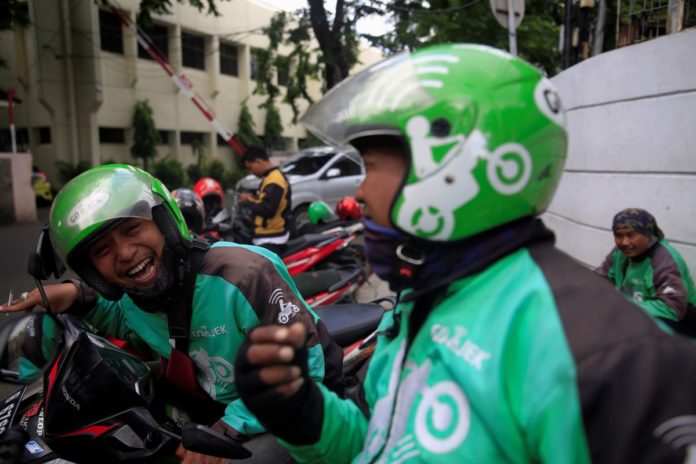INDONESIAN ride-hailing company Gojek will finally begin operating in the Philippines, Singapore and Thailand this year, fulfilling its plans for expansion in Southeast Asia and entering a market monopolised by regional rival Grab.
The entry into the three countries comes after the company began operating in Vietnam, continuing the growth its app-based ride-hailing service that was established eight years ago, according to the Jakarta Post.
Gojek’s Sumatra chapter regional corporate communications head Teuku Parvinada said the company began implementing its plans to expand in ASEAN countries and would continue the effort in 2019.
SEE ALSO: Indonesia: Gojek users can soon call Blue Bird taxis on app
“Gojek has been penetrating the ASEAN region. It is in Vietnam and will start in Singapore, Thailand and the Philippines,” Parivanda said.
The company also touts its app-based GoFood meal delivery service as the largest in the world and which will likely make a foray into the ASEAN countries.
“Hopefully it could give Indonesia more leverage because this product originated in Indonesia,” Parvinanda said.
In Indonesia alone, GoJek boasts more than one million drivers. According to the Jakarta Post, micro, small and medium business (UMKM) operators had benefited greatly from GoJek’s spillover effect, despite creating online-based transportation causing turmoil in the country earlier.

(File) A Gojek driver shares jokes with his colleague while waiting for customers along a street in Jakarta, Indonesia, December 15, 2017. Source: Reuters/Beawiharta
“Our real goal is to expand access for the UMKM. Previously, 82 percent of UMKM partnering with us had no access to food delivery services. Finally, they are now helped by GoFood services,” Parvinanda said recently.
Research from University of Indonesia’s Demographic Institute in 2017 found that GoJek had contributed some Rp 9.9 trillion (US$684 million) to the national economy.
In Singapore, Gojek has already introduced dynamic where prices increase or decrease based on demand, the Straits Times reported.
The company said dynamic pricing would help shorten waiting times for both commuters and drivers.
And while prices could spike during high-demand periods, Gojek said users can be assured that rides would “remain competitively priced”.
GoJek, which launched a beta version of its app in the city-state in November – had earlier said that it would not use dynamic pricing during the initial weeks of operations.
SEE ALSO: Gojek eyes expansion in Southeast Asia. Here’s where they could ride next
“Dynamic pricing has now been introduced as part of our continued beta phase,” a Gojek spokesman was quoted as saying.
“This is part of Gojek’s ongoing programme to improve user experience in Singapore as we fine-tune our service to ensure it remains competitively priced, while meeting the needs of Singaporeans,” she added.
Last month, Lim Kell Jay, the Singapore head for Grab, had told local media his company did would not likely go on price war with Gojek.
Grab has dominated the ride-hailing market in Southeast Asia since the departure of Uber after the former put up fierce competition with the American firm through incentives for passengers and drivers.





